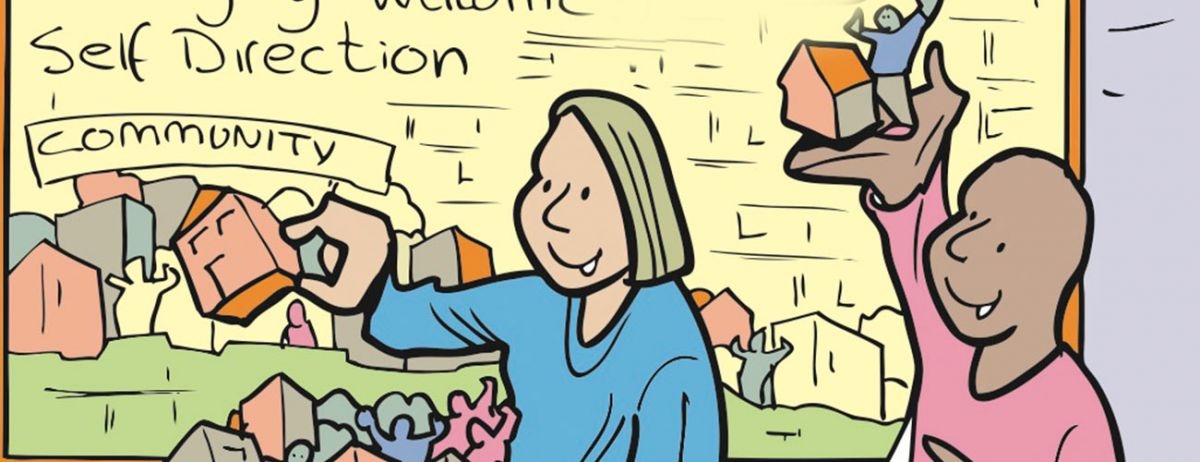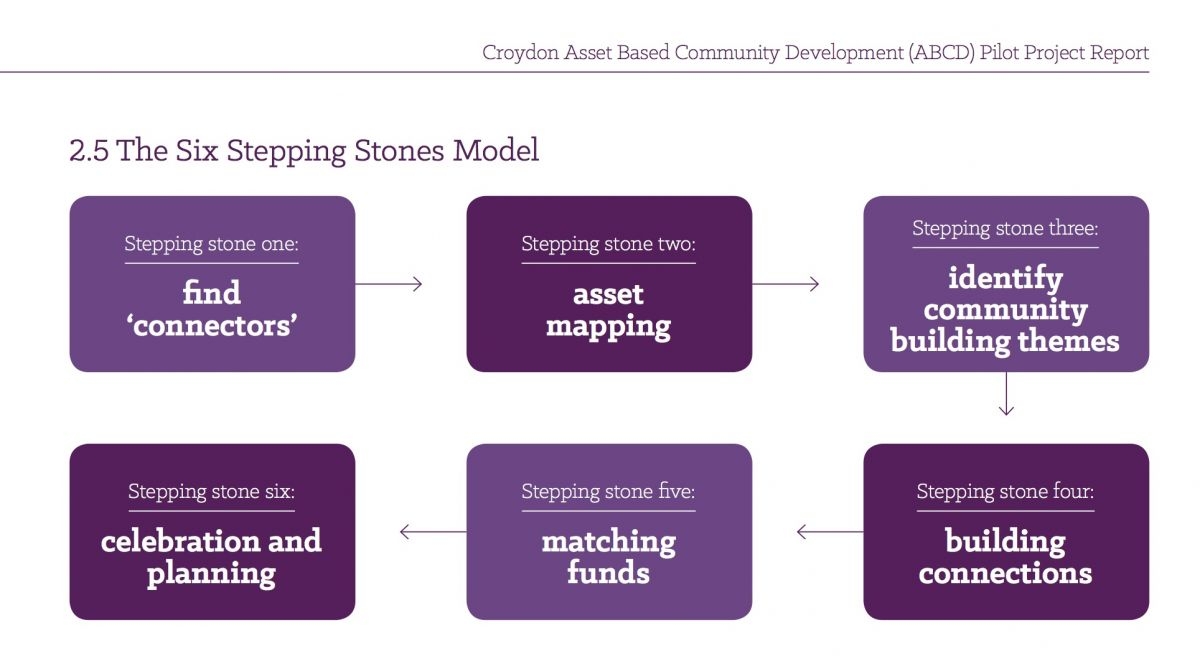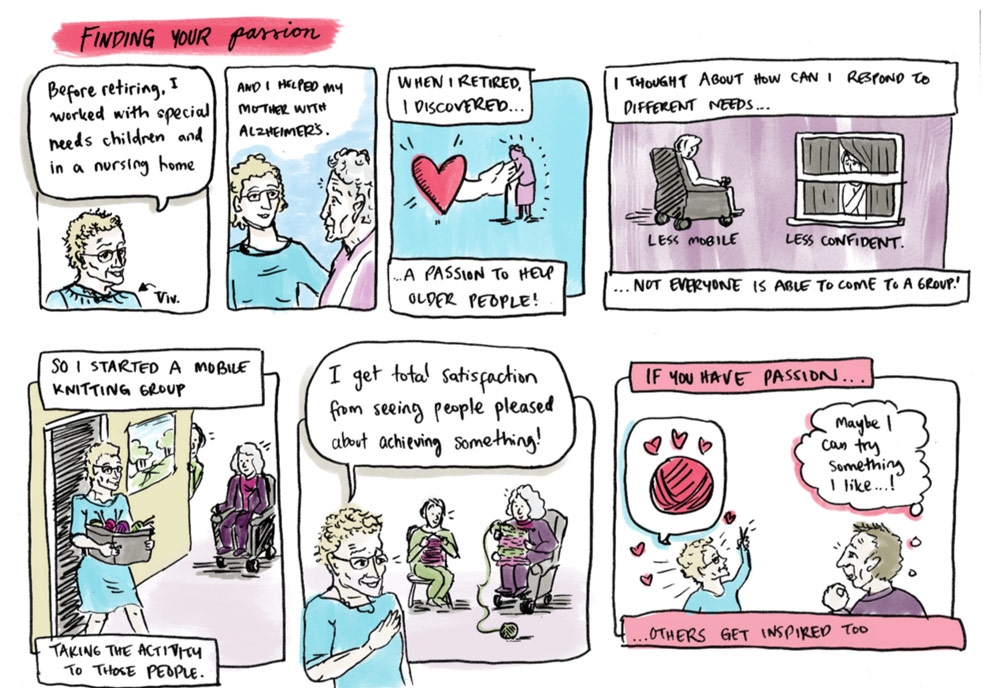“Deep, visible curiosity-imbued with respect-will take you a long way.” Prof Jody Kretzmann, Co-Director of the ABCD Institute
Nurture Development’s approach to evaluation and learning supports real-time learning in complex and emergent situations.
We see evaluation and learning as closely linked, capturing learning from what we do (process/outputs) and evaluating what is achieved (change, outcomes and impact). Both are important for us.
Our approach combines participatory self-assessment that takes each context seriously, with a concern to draw out learning that can inform work across a range of settings. We integrate quantitative and qualitative methods in a customised and rigorous evaluation approach.
Our Approach / How we work
We aim to work together with our clients to develop an Evaluation Strategy and Learning Framework that fits each site.
We can advise on how to balance participatory approaches with enlisting external evaluators where this is appropriate. We can also help you access and articulate the existing evidence and experience on ABCD.
One of our Associates (who is not directly working on the project / in the Learning Site) can work with you to design and lead a developmental evaluation over the life of the project or programme, including advising on capacity development for project participants, and the fruitful engagement of external evaluators where necessary.
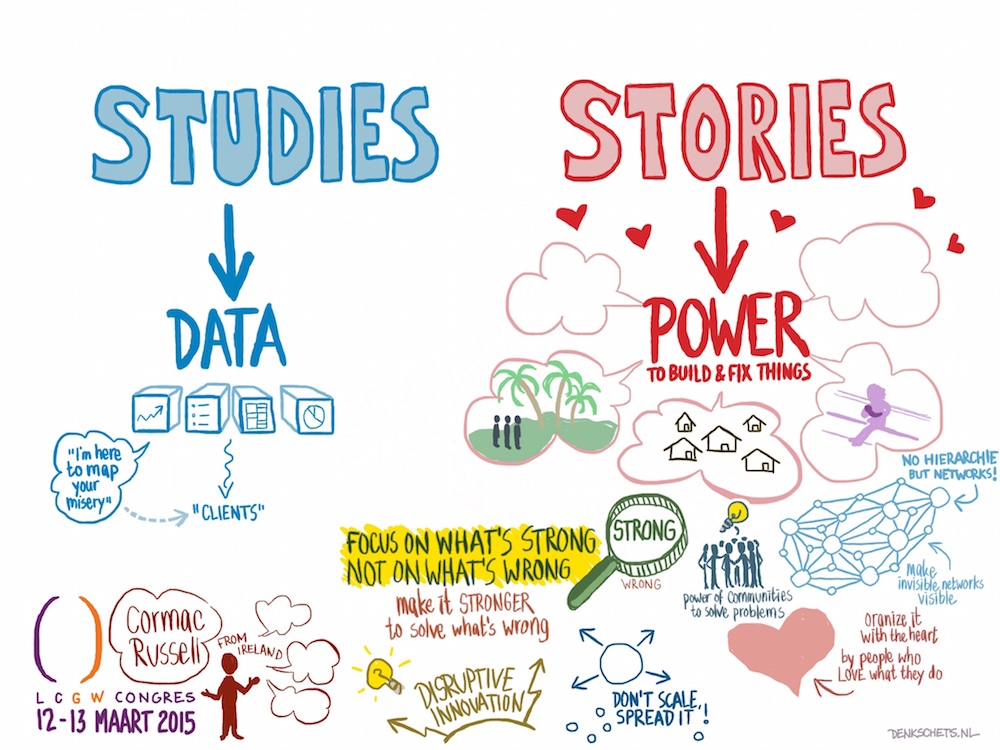 Methods and Approaches
Methods and Approaches
We recommend the use of Developmental Evaluation and Realist Evaluation which support real time learning and working alongside partners to understand the complex and diverse ways that community building plays out.
This combination of methods supports the gathering of evidence to help understand and address emerging issues in context, while supporting cumulative learning across many different places to inform future action.
We offer a menu of choices of methods and approaches tailored to each setting, which may include:
- Case studies and complex case comparative methods.
- Participatory learning and reflection methods including participatory statistics.
- In-depth interviews with key informants.
- Stories of most significant change.
- Network mapping and analysis.
We seek to weave the learning tools chosen for each situation (or case) into the everyday work of a community building project, with a thoughtful balance between the practice tools of community building and the evaluation methods chosen.
Understanding the intended users and uses of the evaluation is always a part of informing the evaluation design and implementation so that it fuels learning and improvement and does not remain a paper exercise.
Whichever methods are to be used, they are informed by a core set of values which include:
- Genuinely participatory.
- Inclusive and respectful of citizens.
- Have access to an able local partner as evaluator.
- Feature an open minded and independent perspective.
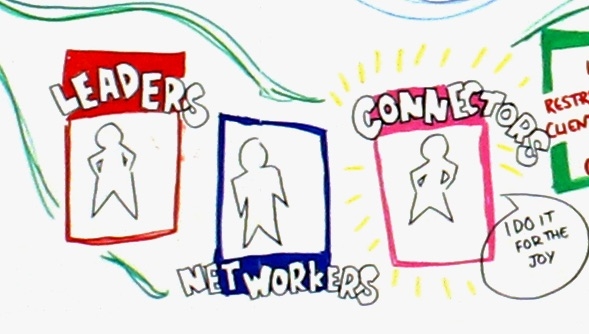 Outcomes of interest
Outcomes of interest
Each context is different, and an important part of any evaluation is embracing and understanding this. Some indicative outcomes that our approach helps to map over time include:
· Community builders and connectors – changed roles, activities and efforts.
· Individual residents – feeling more connected, participating in community efforts, improving skills and confidence.
· Communities – more associations and groups, with increased diverse membership, increased reciprocity and trust, resources in the area brought into use, community capacity to respond increased.
What can Nurture Development provide?
- Advice and support about developing a learning and evaluation plan appropriate to your ABCD efforts.
- Access to experienced evaluation specialists. Our team includes people with expertise in relevant skills such as qualitative methods, realist evaluation, developmental evaluation, social capital. measurement, complex case comparison, participatory learning and reflection.
- Support for residents and those involved in projects to build their everyday evaluation skills.
- Concise user friendly communication of evaluation learning and results in a range of appropriate formats.
- Access to a growing body of knowledge and experience based on work in other sites.
Some resources we find useful:
- Most Significant Change Guide: see here.
- An introduction to realist evaluation including a downloadable chapter from Pawson and Tilley (1997): see here. www.communitymatters.com.au/gpage1.html
- A Brief introduction to Realist Evaluation by Dr Gill Westhorp. Introduction to Realist evaluation, what makes it distinctive, and key aspects of the approach: see here.
- Introduction to Realist Evaluation and Realist synthesis – Powerpoint presentation by Ray Pawson, 2006: see here.

